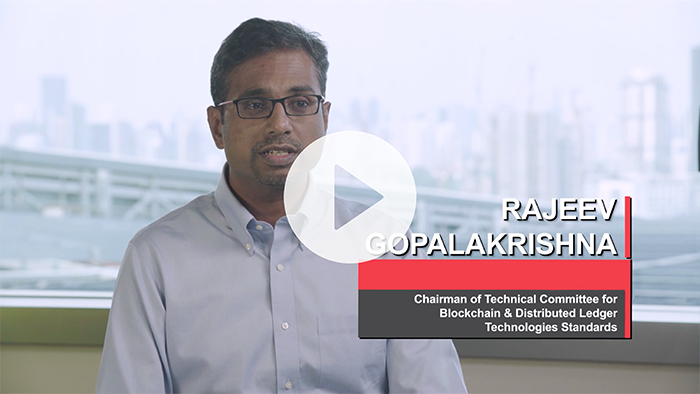Blockchain technology is an emerging area which is being actively explored around the world today. A blockchain is a public ledger which records and verifies transactions that have taken place. By design, it cannot be tampered with or changed. It provides transparency, traceability and trust, and removes the need for middlemen – therefore reducing transaction costs.
Blockchain opportunities and challenges
While blockchain was originally proposed for cryptocurrency, the technology has the potential to transform how businesses transact in domains such as financial payments, healthcare and supply chain management. For example, in Singapore, the Monetary Authority of Singapore and a consortium of local and overseas banks have been testing the use of blockchain for clearance and settlement of payments and securities to improve efficiency with reduced risk and costs.
Blockchain technology is still in the early stages of exploration and experimentation, but is progressing rapidly with interesting opportunities in many sectors such as healthcare, logistics and finance.
The first challenge lies in the increasing use of blockchain as a buzzword without a universal definition for it and its associated terminology. This has exacerbated confusion and difficulties in understanding the new technology. It is therefore crucial to standardise the terminology used in the blockchain industry to provide greater clarity to potential stakeholders.
Standards also play a key role in establishing baseline security and privacy protections of technologies. Information security is a key concern when it comes to the application of blockchain solutions. The governance of a foundational technology of this complexity requires the various stakeholders to collaborate in establishing common ground and making this technology work. By setting the security, privacy and governance requirements, standards will support the deployment and adoption of blockchain technology with greater market confidence and scalability.
With the increasing interest in this area, numerous blockchain applications are being introduced into the market. The potential incompatibility among such solutions justifies the need for standards to enhance interoperability.
Creating solutions with standards
To achieve this on a global scale, we need cooperation through international bodies such as International Organization for Standardisation (ISO). This has recently gained momentum with the establishment of an international technical committee on Blockchain and Digital Ledger Technologies (ISO TC 307) in 2017. The work of 37 member countries – representing various entities from the government, industry and academia – to set international standards for blockchain technologies has begun.
ISO TC 307 is working to develop a suite of blockchain standards on reference architecture, taxonomy, ontology, security, privacy, identity and smart contracts. Targeted to be released by 2021, these ISO standards would constitute a global set of norms which will enable blockchain applications to operate reliably and effectively.
Specific blockchain use cases and governance aspects are also being studied to understand the evolving applications of blockchain and potential areas which require standardisation.

Click the video to hear from Dr Gopalakrishna on the domains that will be transformed by blockchain technology in the digital economy.
Getting plugged into the global conversation and setting standards
In view of these developments, the Information Technology Standards Committee under the industry-led Singapore Standards Council appointed by Enterprise Singapore, has formed a national technical committee on Blockchain and Digital Ledger Technologies to represent Singapore in ISO TC 307.
The inputs from this technical committee will help shape the development of these international standards to support the use and sustainable growth of blockchain technology in Singapore and beyond. The technical committee will prioritise the development and promotion of international blockchain standards that are aligned with Singapore’s interests. It is therefore crucial to involve various segments of the blockchain community in this public-private partnership to obtain balanced and holistic inputs from Singapore.
The focus of this national technical committee is to develop standards to set quality requirements, build trust in blockchain solutions and guide new business models. The committee looks forward to active participation from key stakeholders in this standardisation work.
Dr. Rajeev Gopalakrishna is the Chairman of the Technical Committee on Blockchain and Distributed Ledger Technologies under Singapore Standards Programme administered by Enterprise Singapore. He is also the Chief Scientist for blockchain research at Indorse with 20 years of experience in deep-tech R&D.
To find out more about the blockchain standards and/or how you can be involved in blockchain standardisation, please contact us at standards@enterprisesg.gov.sg.

